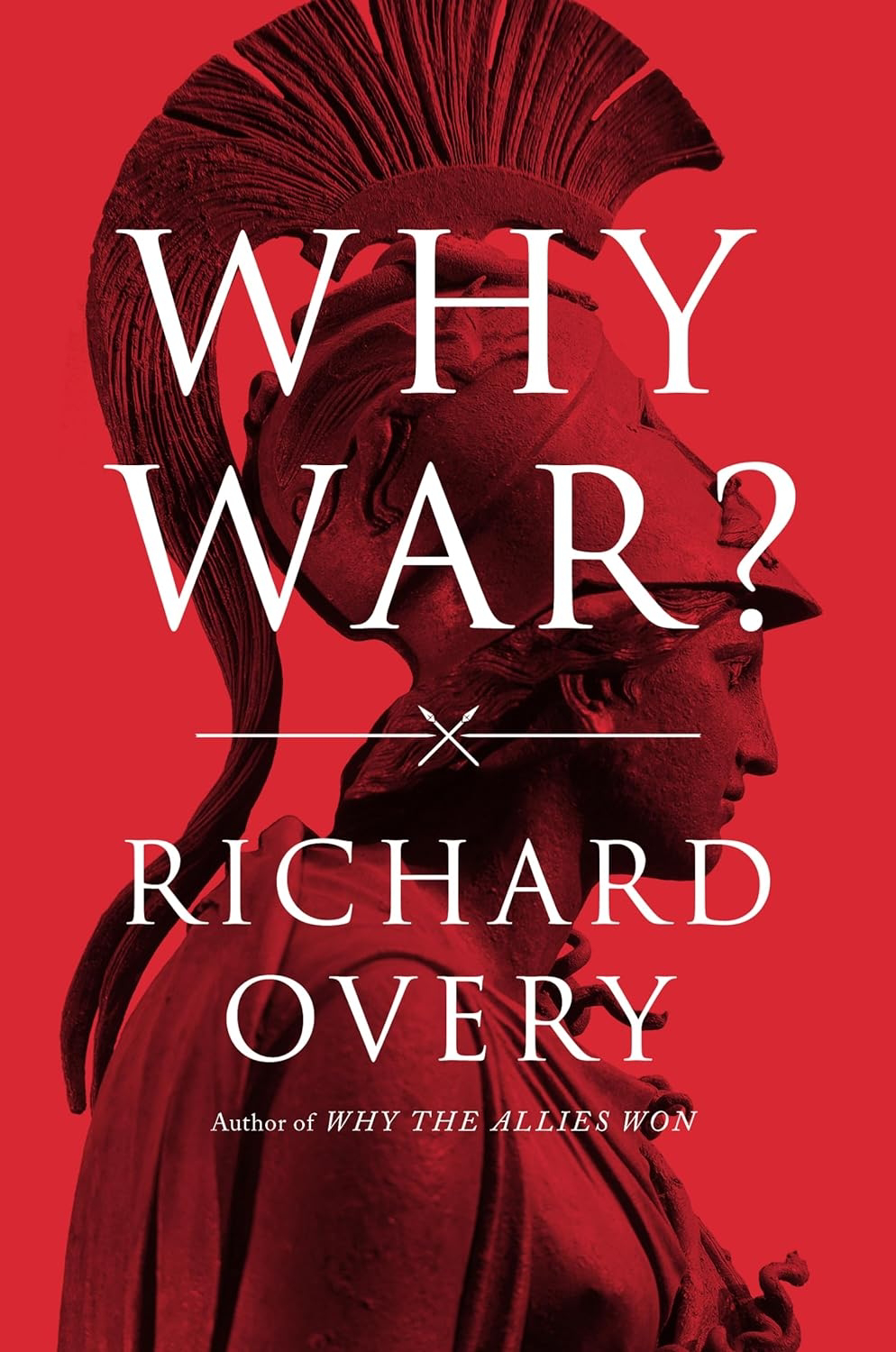"Why War?" by Richard Overy
is a thought-provoking book that delves into the causes and consequences of war throughout history. Richard Overy, a renowned historian, explores the complex motivations behind why nations and societies go to war, challenging simplistic explanations and offering a nuanced understanding of the phenomenon.
Key Themes:
1. Historical Patterns of War
- Overy examines wars from ancient times to the modern era, identifying recurring patterns in the causes of conflicts. He discusses how wars have often been driven by a combination of factors including political ambition, economic interests, territorial disputes, and ideological differences.
2. Human Nature and War
- The book explores the role of human nature in the propensity for conflict. Overy questions whether war is an inherent part of the human condition or a result of specific circumstances. He argues that while aggression may be a part of human nature, war is not inevitable and is often the result of deliberate decisions by leaders.
3. The Role of States and Power
- Overy highlights the role of states and the pursuit of power as central to the outbreak of wars. He discusses how the desire for dominance, security, and control over resources has historically led to conflicts. The book also examines how the structure of international relations and the balance of power can influence the likelihood of war.
4. Ideology and War
- The impact of ideology on warfare is another key theme in the book. Overy explores how beliefs, whether religious, nationalistic, or political, can drive societies to war. He discusses how ideologies can be used to justify conflicts and mobilize populations in support of war efforts.
5. The Impact of Technology
- The book also addresses the role of technology in warfare. Overy examines how advancements in military technology have changed the nature of war, making it more destructive and global in scale. He discusses how technology has influenced strategies, tactics, and the outcomes of wars.
6. Consequences of War
- Overy does not shy away from discussing the devastating consequences of war, both for those directly involved and for the broader world. He explores the human cost of war, including the loss of life, displacement of populations, and long-term economic and social impacts.
7. The Possibility of Peace
- The book concludes by considering the prospects for peace. Overy examines historical attempts to prevent war, such as diplomacy, treaties, and international organizations. He argues that while war has been a persistent feature of human history, it is not inevitable, and efforts to promote peace and resolve conflicts without violence are crucial.
Conclusion
"Why War?" by Richard Overy is a comprehensive exploration of the multifaceted causes of war. The book provides a deep understanding of why wars happen and what can be done to prevent them. Overy's analysis is both historical and philosophical, offering readers a rich and nuanced perspective on one of the most important issues in human history.
What I learnt from this book
The roots of war are in competition for resources mates and territory, but the human being is more than just instinct. Leaders take into account special circumstances - in particular the type of international system and the balance of power (these are Mearsheimer themes), their personal political ambitions, the backdrop in terms of clashes of civilisation or ideology, religious, nationalistic, or political conflicts, before deciding whether to oppose or submit.
Aggression may be a part of human nature, but the decision to go to war is human.
Overy makes some more good points. He observes that technology has meant that war is more and more distructive and global. He describes the consequences of war, including the loss of life, displacement of populations, and long-term economic and social impacts. He argues that while war has been a persistent feature of human history, it is not inevitable, and efforts to promote peace and resolve conflicts without violence are vital for our continued life on planet Earth.
I would like to have seen more on the psychology of propaganda: how propaganda and ideology and psychology are used to mobilise people.








0 comments:
Post a Comment
Keep it clean, keep it lean